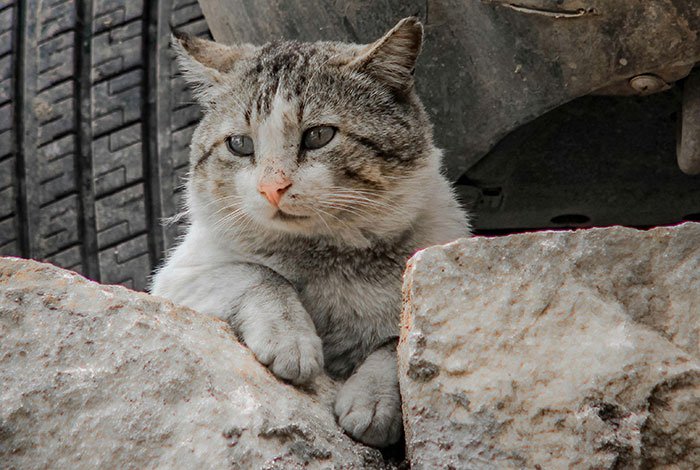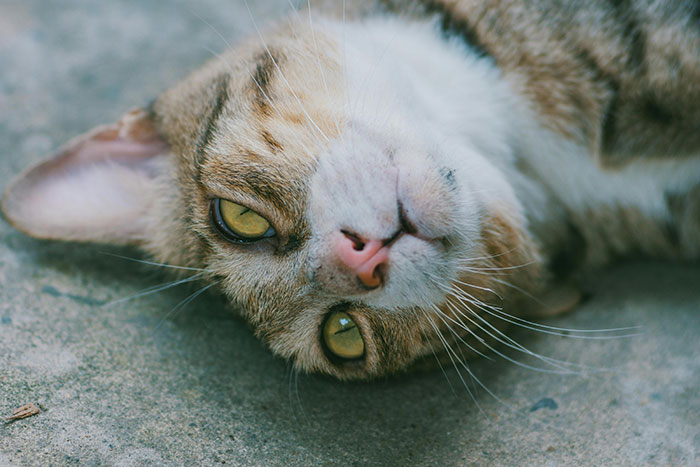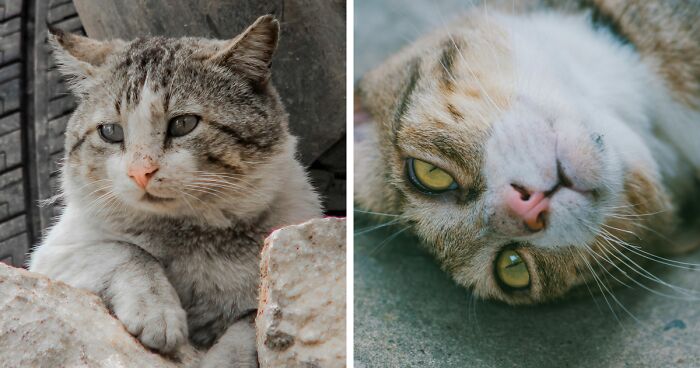Have you ever wondered why your feline friend’s nose is wet? Is it because they’ve been drinking water from their bowl, or is there a science behind it?
This article will explore why your feline friend’s nose is always wet. We’ll also explore how it contributes to a cat’s overall health and well-being.
Grab your favorite feline companion, and let’s uncover the mystery of their wet noses together!
- Cat noses have sweat glands & saliva for wetness.
- Wet noses help cats detect scents & thermoregulate.
- Drier noses in cats may be due to dehydration.
- Nose moisture varies by genetics, environment, age.
- Abnormal wetness can indicate respiratory issues.
The information provided herein is for informational purposes only. Please refer to our disclaimer for more details..
Anatomy of the feline nose
Externally, the cat’s nose comprises the nostrils, the bridge, and the surrounding tissues. Internally, it is a well-structured combination of cartilage, bone, and a nasal cavity lined by a mucous membrane.
Cats also have an intricate system of scent receptors designed to enhance their olfaction.

Image credit: samer daboul
Cats rely on their sense of smell for communication, exploring the world around them, and choosing what to eat.
A change in your cat’s nose anatomy can indicate underlying health issues like allergies, infections, and respiratory tract infections.
In addition, the wetness of a cat’s nose can tell you a lot about the animal’s age, its environmental condition, and changes in bodily functions. Hence, as a pet owner, you must pay attention to changes in your cat’s nose.
Should all cat noses be wet?
No, not all cat noses need to be wet. Just like humans, cats have individual variations in their physiology. Some healthy cats may naturally have drier noses.
As long as the cat is otherwise healthy and exhibits normal behavior, a dry nose may not be a cause for immediate concern.
A cat’s nose may be wet or dry depending on factors like genetics and age. In fact, the moisture level of a cat’s nose can change throughout the day and can be influenced by factors such as the surrounding environment, hydration level, and overall health.
5 reasons behind wet noses in cats
It’s normal
The skin around the nasal openings, called the rhinarium, is filled with active sweat glands. These sweat glands around the nose help create moisture.
In addition to this, cats are fastidious groomers who continuously lick their snouts. All these factors contribute to giving a cat a wet and warm nose.
Environmental factors
Environmental conditions, such as humidity and temperature, can influence the wetness of a cat’s nose. Cat’s noses become wetter because the air is saturated with moisture.
Drinking
Drinking water leaves a cat’s nose wet. This is usually due to water droplets or excess saliva. This is a temporary occurrence and doesn’t necessarily indicate any health issues.
An upper respiratory infection
A wet cat nose could also be a pointer to overall health. If a cat has a wetter nose than normal, accompanied by other symptoms of illness like a runny nose, lethargy, or sneezing, it might have an upper respiratory tract infection.
According to Cornell University College of Veterinary Medicine, other symptoms of upper respiratory tract infections include clear or colored discharge from the eyes or nose, coughing, sneezing, swelling of the mucous membranes around the eyes, ulcers in the mouth, lethargy, and anorexia.
In such cases, consult your vet as soon as possible.
Allergies
Wet noses can also occur in cats suffering from allergies. Allergens like dust and pollen can irritate the cat’s eyes and cause the tear glands to produce tears.
Tear ducts carry excess tears from the eyes down to the nasal cavity and contribute moisture to the cat’s nose.
Why nose wetness is important to your kitty
Nose wetness is important in cats because it helps with scent detection, thermoregulation, and communication. The moisture helps the cat’s nose capture and dissolve scent particles and optimizes the function of olfactory receptors found in nasal passages. Hence, the moisture on the cat’s nose contributes to heightened olfactory sensitivity.
This heightened sense of smell is also needed for social interaction and mating behavior in cats. Their moist noses allow them to gather information about other cats’ health, mood, and identity.
Cats also use their noses for thermoregulation. When they lick their nose, it gets wet. As the moisture evaporates from their nose, it dissipates heat and helps them cool down their entire body. This mechanism of thermoregulation is known as evaporative cooling.
Causes of dry nose in cats
The primary reason for a dry nose in cats is usually dehydration. A cat that isn’t drinking enough water will definitely have a dry nose. Other factors like dehydration, age, environmental factors, and underlying health conditions can also cause a dry cat nose.

Image credit: FOX
In an arid environment or one with low humidity, cats are more likely to have drier noses because the drier air absorbs moisture and leads to fluid loss from their noses.
Low humidity can also contribute to dehydration, causing mucus glands to produce less moisture and leading to a dry and sometimes cracked nose.
Too much exposure to a heat source could lead to a dry snout in cats. This could look like playing in the sun for too long or even sitting by a heating vent for a long time. Also, a lack of fatty acids in your cat’s food can cause your kitty’s snout to be dry. Fatty acids are an important element in both cats and dog’s diet.
Grooming: How to take care of your cat’s dry snout
If your cat’s nose is dry, there is no cause for alarm. Here are a few things you should do:
1.) Make sure that your cat has access to fresh water.
2.) Use a humidifier in your home, especially during the dry seasons.
3.) Review your pet’s diet to ensure your cat gets all its required nutrients. You can consult a pet nutritionist or a veterinarian to help with this.
4.) Limit the time your feline spends in the sun. Use pet-safe sunscreen if necessary.
5.) Use a pet-safe balm to moisturize your cat’s nose.
6.) Consult your veterinarian to rule out any underlying health issues.
Frequently asked questions
Should my cat’s wet nose be cause for concern
A wet nose is usually a normal and healthy condition for cats. However, if there are accompanying symptoms of illness or distress, you should seek veterinary advice to rule out any potential health issues.
What is the liquid that makes a cat’s nose wet?
The wetness of a cat’s nose is primarily due to a combination of sweat glands and saliva. These fluids help regulate their body temperature and maintain a moist and functional nose.
477views
Share on Facebook
 Dark Mode
Dark Mode 

 No fees, cancel anytime
No fees, cancel anytime 


















































4
1